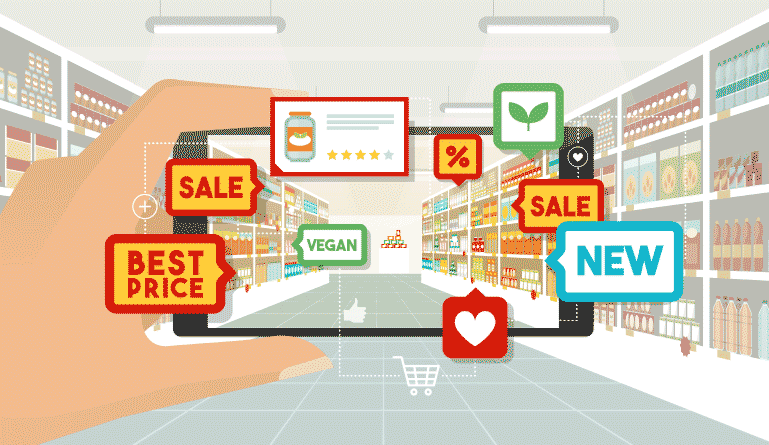This term places the priority on the consumer not making a profit. When a business uses modern marketing concepts, the must understand that they are measuring success based on the ability to find out what future consumers want/need then offering services that satisfy those wants/needs.
Accomplishing this task is the motivation for all business marketing decisions and making the consumer happy is the ultimate goal.
Importance of Modern Marketing Concepts
Following the aspects of modern marketing concepts not only is beneficial for consumers but can also be beneficial for the businesses serving them. Business can evaluate their operations on a full scale to determine if different departments and systems, like sales and marketing, are collaborating efficiently in monitoring data and results of marketing strategies.
This emphasizes the importance of integrated relationships between departments and the ability to collect and analyze consumer data to ensure impeccable customer service.
5 Modern Marketing Concepts
-
The production concept
Before a business can offer a product to consumers, they must manufacture or produce said product first. This concept is based on the philosophy of the more something is produced, the less it costs for consumers and if a business can figure out how to produce a product on a mass scale (factories), it lessens the costs for them as well. If this concept could be described in 4 words it would be: Increase profits, reduce costs.
-
The product concept
No matter how high quality a product is, the consumer essentially weighs the cost, accessibility, and efficiency before deciding to purchase a product. If a business produces luxury goods that are pricey, then the number of consumers willing to, but the product will possibly below, making it a niche product.
-
The sales concept
Dealing with the process of actually selling a product, this concept emphasizes the importance of selling as much of the product as possible no matter if the needs of the consumer are met or the quality of the product/service. Following this concept alone does not lead to long-term consumer relationships, satisfaction, or consistent sales of a product.
-
The marketing concept
As stated earlier, the marketing concept places the consumer as the main priority for business operations. All motivations for creating a product and creating a marketing strategy to reach potential consumers is all for meeting their wants and needs to increase their satisfaction. This can lead to a business being the preferred choice among its competitors due to putting the consumers’ needs first.
-
Societal marketing concept
While similar to the marketing concept in prioritizing the needs of the consumer, the concept also urges businesses to put in mind the overall welfare of the consumer and society as a whole. An example of this might be a business considering an eco-friendly way of producing its products in order to reduce carbon emissions, making the air healthier and improving breathing conditions for consumers.
Societal marketing can enhance profits from the sale of products by:
- Making a product is useful enough to meet consumer needs
- Focusing on the well-being of the public at large
- Bettering the consumers’ quality of life
The modern marketing concepts are:
- Knowing who your target consumer is
- Learning and comprehending the wants/needs of the consumer through online interaction
- Creating products that meet the needs of the target consumer
- Leading the competition in customer satisfaction
- Making sure a business’ efforts make a profit for the organization
4 Characteristics of Marketing Concept
-
Customer orientation
The marketing process begins with knowing the customers’ desires until a business can create a product or offer a service that can meet and satisfy them. Happier customers lead to higher profits.
-
Integrated approach
Coordinated collaboration between various departments within a business (marketing, production, finance, etc.) is crucial to meeting the customers’ needs.
-
Long-term perspective
Creating long-lasting relationships with consumers with consistent service and quality that they can trust ensures profits, retaining customers, and attracting new customers over a long period of time. This makes a business into a trusted and well-known brand.
-
Profitable sales volume
Earning a profit over a long period of time is a tell-tale sign of whether a business’s marketing efforts were a success. Not only does a business want to increase profits, but they want it to happen consistently long-term
Implementation of the Marketing Concept
-
Adoption of customer orientation:
In essence, the consumers’ needs lead the direction of how a business operates. Through market research and monitoring consumer behavior online, a business can stay on top of trends in the market and the ever-changing tastes of consumers.
-
Formulation of goals:
Creating goals to guide where operations need to be in terms of meeting consumer needs should be a top priority for a business looking to make or increase profits. This also means that businesses as a whole have to work as one unit, even with various departments with different functions, to meet those goals.
-
Integration of business operations:
After establishing what the goals are, a business must follow through in streamlining various business departments or operations in order to collaborate and meet those goals. Each department and employees working in them should understand the main goal, which is consumer satisfaction.
Benefits of marketing concepts
-
Increased employment opportunities
As a business grows, thanks to acquiring customers based on professional services satisfying their needs, they will need to hire more employees to accommodate expanding operations.
-
Awareness and acknowledge of consumer and social well-being
When consumers are doing well then that leads to society as a whole doing well. A business can make sure that this is happening by prioritizing needs outside of what services it can offer to its consumers by improving production and operations.
-
Focus on the scientific frame of thought
In order for a business to strategically find a way to be beneficial to society as a whole, it must be based, not only on market research but on scientific research as well.
-
Increased quality of production
Knowing what the consumer needs can allow for a business to mold their products in the production process to meet expectations, thus increasing the quality of what they have to offer.
-
The reason for business operations
What is the point of running a business and offering products and services, if said business does not even know what people want or need?
-
Creates an environment for healthy competition
Different people want/need different things. This allows for multiple businesses (no matter the size) to thrive in the same marketing by catering to those various needs.
-
Increasing consumer status
The more a consumer is happy with a business’ products/services, the more they will buy. New consumers become and the more they buy, they eventually become a business’ targeted and loyal demographic.
-
Streamlining business and societal goals
The collaborative effort in a business attempting to align their goals with societal wants leads to more satisfaction across the board.
-
Marketing career
Creating effective marketing strategies based on consumer wants is a sure way to lead a long and successful career in the marketing field.
-
A balancing force in society
Good business makes people happy. When more people are happy, the better society becomes.
Difference Between Traditional marketing and modern marketing:
With traditional marketing, the main goal was selling a product, making a profit, all while reducing the cost of production. This is the mindset of traditional capitalistic values, especially during the 1950s when the ability to mass-produce was the determining factor of which business would be on top. With modern marketing, the consumers’ needs are the priority and business operations revolve around that.
Final Thoughts
We have all heard the saying, “The customer is always right.” With learning about modern marketing concepts, the saying is broken down into philosophies and strategies that help readers to comprehend why currently business follow that rule of thumb.
In a time of a global pandemic and national protest about police brutality, it is not enough for a business to just sell a product. They must also help to contribute in making the world a better place for their consumers and society at large.
Other Useful Resources:
***
Kierra Benson is an alumnus of the University of North Texas at Dallas with a Bachelor’s degree in Communication and Technology. She previously completed an internship at a local newspaper and worked as a content creator for a small online business. Her goal is to work in the media industry in writing/editing and advertising. She has always been fascinated by how messages are marketed in the media to influence the masses and sell products. Connect with her on LinkedIn.







